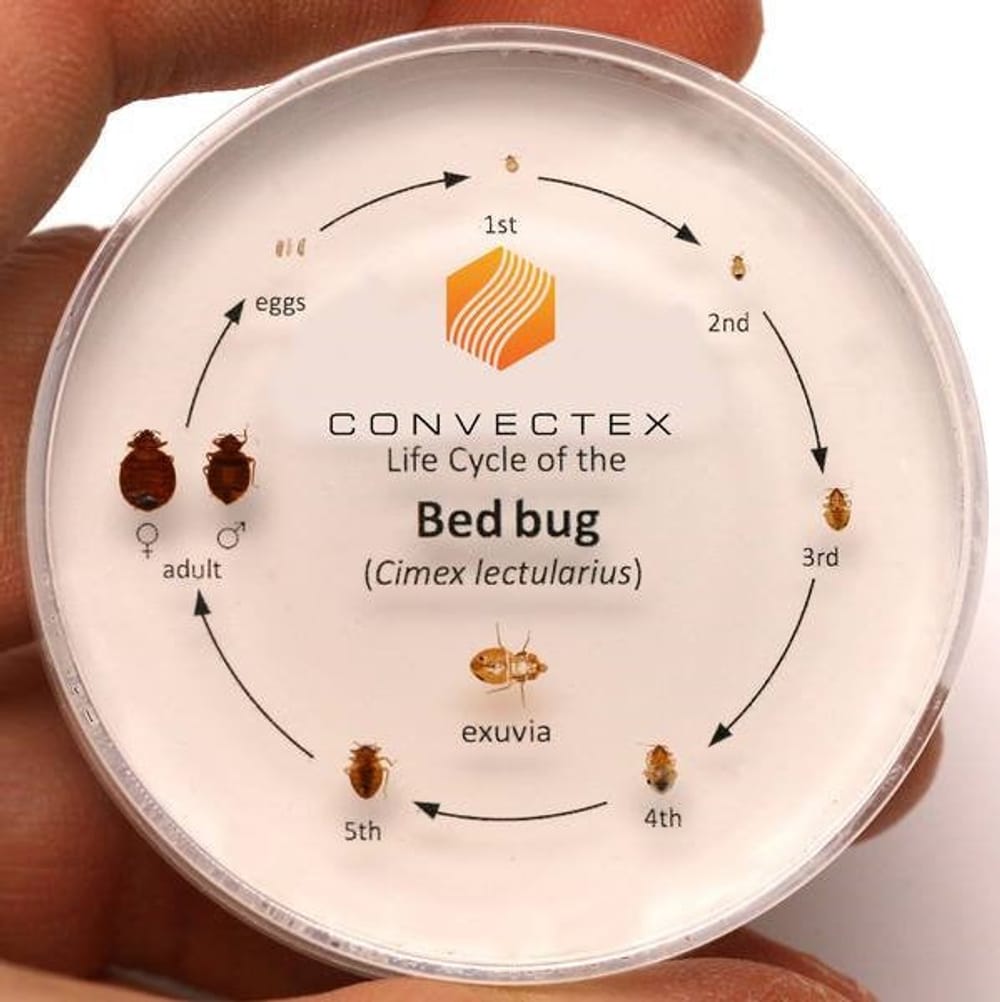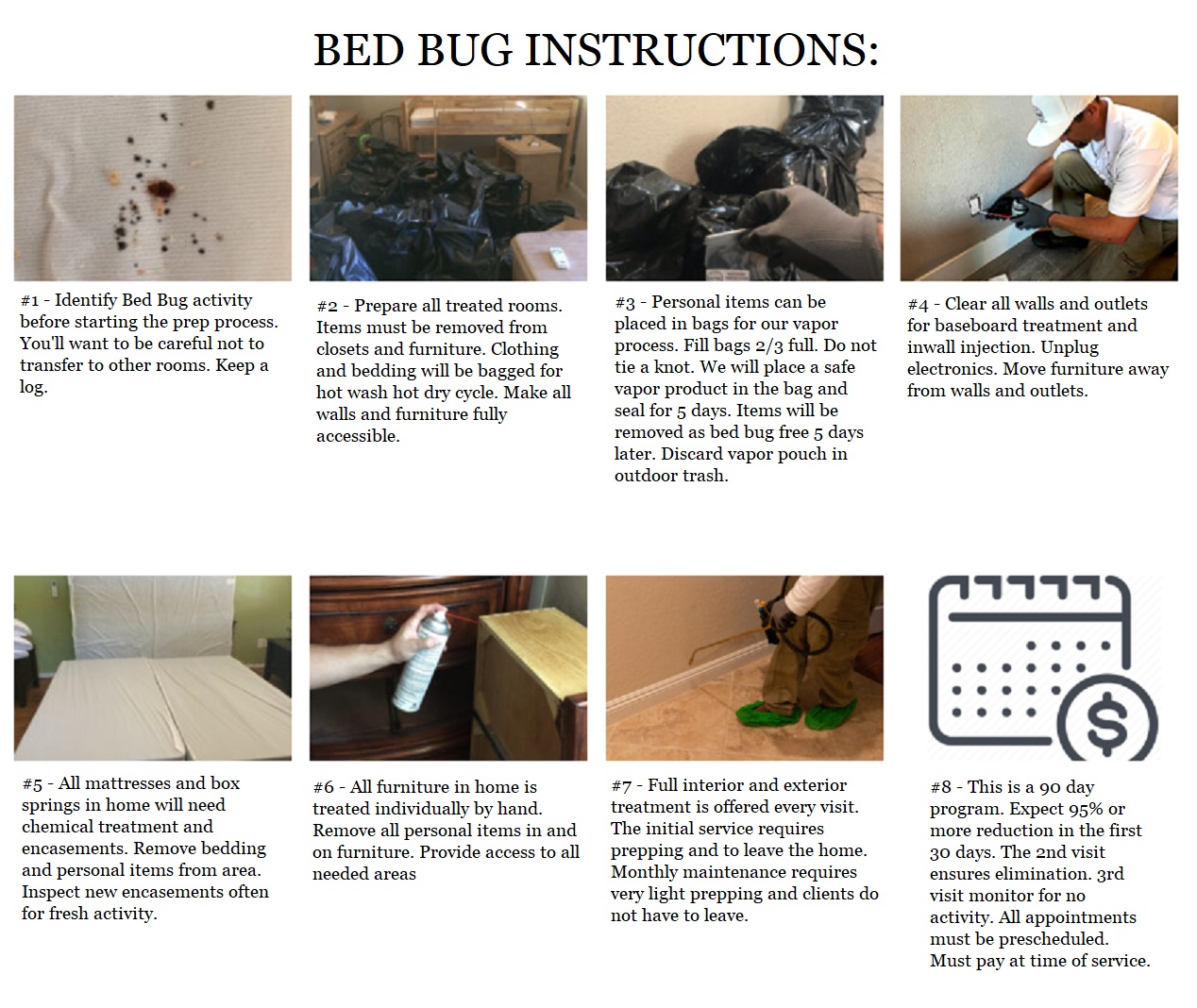How Bed Bug Services can Save You Time, Stress, and Money.
Table of ContentsBed Bug Services Things To Know Before You BuyBed Bug Services for BeginnersThings about Bed Bug ServicesBed Bug Services - Truths
A professional bed bug inspection is a meticulous process and relies on expertise. Bed bugs are small, elusive, and adept at hiding that often dwell in small hiding places in furniture and walls. Because of their stealthy behavior, a thorough inspection is essential to determine the presence and extent of an infestation. Professional inspectors use a combination of tools, procedures, and knowledge to detect bed bugs accurately, preventing spread and further infestation.The first step in any professional inspection involves knowing the habits and life cycle of bed bugs. Bed bugs belong to the order Hemiptera and undergo a life cycle that includes eggs, nymph stages, and adulthood. Adults are around five millimeters long, flat, reddish-brown, and wingless with slender legs and antennae. Their mouthparts are designed to pierce skin and extract blood, often causing red, itchy welts on hosts. Knowing these traits helps inspectors anticipate hiding spots.
Early detection is vital for stopping the problem from spreading. Professionals search for telltale signs such as fresh droppings that resemble small ink dots, old stains, shed skins, eggs, or eggshells (Bed Bug Services). Female bed bugs are capable of laying hundreds of eggs, leading to rapid infestations if unchecked. Evidence of molted skins or eggshells signals ongoing activity and necessitates immediate attention
Preparing for an inspection requires attention to detail. Inspectors often suggest tidying up spaces to allow full access, which facilitates examination of hard-to-reach areas. Bedding and linens may be washed in hot water and dried on high heat, and then stored in sealed bags to prevent re-infestation. Wall decor, mirrors, and pictures may need to be removed to inspect behind frames. Vacuuming furniture and floors can remove loose pests, and vacuum bags should be discarded carefully to avoid spreading.
The Single Strategy To Use For Bed Bug Services
The inspection itself is comprehensive and careful. Inspectors focus on sleeping areas like beds, headboards, and mattresses, looking closely at creases, joints, and folds. Upholstered furniture, including couches and chairs, is carefully examined, with attention to seams and cushions. Baseboards, moldings, the edges of wall-to-wall carpeting, electrical outlets, closets, and storage areas are methodically checked, as these can be common harborage sites.
Specialized tools enhance detection accuracy. Flashlights, magnifying lenses, multi-tools, and mirrors go to website provide visibility in crevices and corners. Monitoring devices like interceptor traps or sticky pads allow ongoing monitoring of pest activity. Some companies employ trained canines, which accurately identify active infestations, distinguishing them from residual signs.

Meticulous documentation is essential. Inspectors record the locations of evidence, severity of infestation, and treatment recommendations. This ensures accountability and offers proof of inspection. Residents are often instructed to preserve evidence for accuracy, as this prevents loss of critical information.
After inspection, a monitoring plan may be implemented to confirm the presence of bed bugs and track activity. Continuous monitoring assesses the effectiveness of treatment, and asking residents about bites and sightings helps pinpoint problem areas. Cooperation from residents enhances detection.
Bed Bug Services - Questions

Professional inspections offer a higher level of accuracy than DIY attempts. Trained inspectors recognize early evidence of bed bugs, prevent misdiagnosis, and provide certainty.
Bed bug inspections are particularly important in places where infestations spread easily. Inspectors check neighboring rooms and shared spaces to identify potential spread (Bed Bug Services). This use this link stops further spread
In summary, a professional bed bug inspection includes identifying the pest, readying the environment, inspecting meticulously, employing tools, maintaining records, and ongoing monitoring. Each step contributes to accurate detection, effective treatment planning, and long-term prevention.
What Does Bed Bug Services Do?
